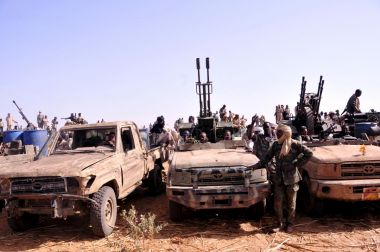South Sudan: New 'potentially catastrophic' bill threatens to restrict aid

Almost five million South Sudanese people are in desperate need of humanitarian assistance, but NGOs working in the region fear they could be crippled by a bill passed on Tuesday.
The Non-governmental Organisations bill will regulate the activities of NGOs in South Sudan, requiring them to register with a government commission and obtain a permit to carry out their work, or face significant fines. They will also be required to use South Sudanese banks, and employ 80 per cent local staff. The government will be able to impose unspecified fees.
The South Sudan NGO Forum has condemned the bill, citing "significant concerns that certain provisions of the NGO Bill will not regulate NGO operations, but rather hinder their ability to serve South Sudanese people at a time when needs are escalating due to the ongoing conflict."
"One of our key concerns has always been the effect this Bill will have on civil society. The work of Civil Society Organisations (CSOs) should not be seen as threatening or challenging to the government but rather supporting its growth and development," a statement from the Forum said.
"The future of South Sudan relies on a vibrant and free civil society. So to the extent that this bill will be used to restrict civil society activities rather than regulate them in a democratic manner, will remain highly concerned."
The bill has "enormous implications" for the humanitarian response in South Sudan, and the potential to cause "potentially catastrophic effects for the large amounts of the South Sudanese population that rely on NGOs to provide basic services and lifesaving aid," the statement added.
According to the UN, some 2.5 million people are facing severe food insecurity in the county, and over half of the total population of 12 million need aid. The UN has also estimated that 50,000 South Sudanese children could die in 2015 as a result of the crisis, and at least 100,000 civilians have been displaced.
July 9 will mark the fourth anniversary of South Sudan since its secession from the north in 2011 following two bloody civil wars. Significant political unrest has plagued the country ever since, and a fresh wave of violence began in December 2013 as a result of an attempted coup by soldiers loyal to President Salva Kiir's former deputy Riek Machar. The fighting subsequently escalated, spreading throughout the country and fracturing it along ethnic lines.
Now 16 months into the crisis, fighting has intensified, causing some NGOs, including World Vision and Doctors without Borders, to withdraw from Unity state in the north of the country. World Vision is the primary partner for the distribution of materials for shelter and non-food items in the region, and also delivers vital nutrition programs.
"We estimate that over 10,000 children under five could be at risk from malnutrition because we cannot reach them with assistance," acting country director for World Vision, Samar Abboud, said.
"It is hugely distressing to us that we have had to halt these programs. Our nutrition programs target children and in other areas where this program has been implemented, World Vision has reduced levels of severe acute malnutrition to less than 1 percent."
Speaking from Juba, Abboud described the environment for NGOs in South Sudan as "tremendously challenging and gets more difficult every day.
"We need to recommence these programs as soon as we can to assist some of the 300,000 people who have been left without aid now that aid agencies have had to withdraw," she said. "South Sudan needs peace. South Sudanese need it so that they can try to rebuild their lives and aid agencies need it so that we can help them."
The UK's Minister for Africa, James Duddridge, released a statement yesterday condemning the violence and said he is "extremely concerned" by reports of sexual violence against women and girls, and of civilian homes being targeted and burnt.
Abboud confirmed these reports to Christian Today. "Abuse towards women and children is of great concern," she said, but added that though violence has been significant in a number of states, including Unity, for some time now, the dry season, when armed groups have more mobility, is now coming to an end.
"I can't say that the situation has got worse, it's been an ongoing conflict since December 2013 and has gone up and down ... it's unpredictable," she explained.
Abboud also said there was not great cause for concern regarding the NGO bill just yet. "South Sudan is a new country, and still in the process of creating laws. Most countries have laws that regulate [NGOs]...so we will have to let the bill take its course and see how it will go," she said.
"But I can say that World Vision is committed to South Sudan; to training and supporting its people."











